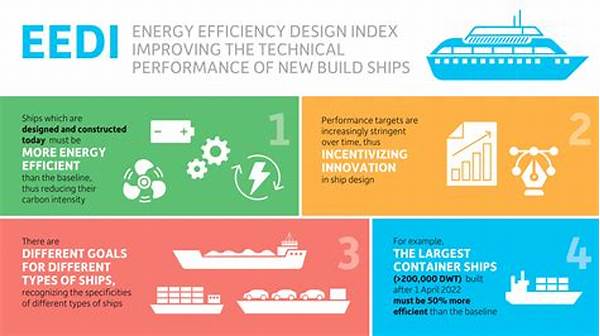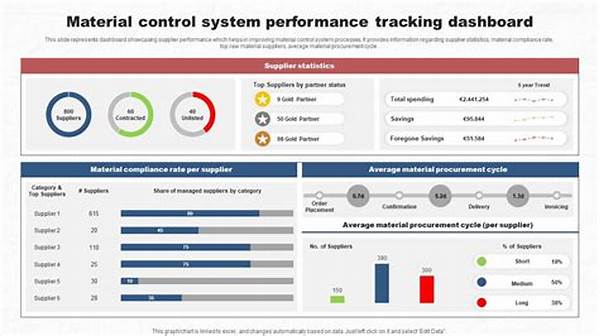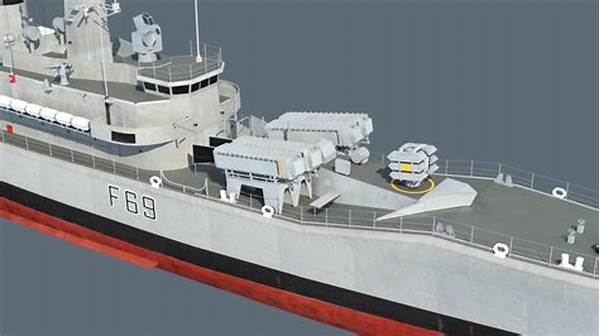Navigating the vast expanse of the ocean requires colossal amounts of energy. Historically, ships depended on coal, oil, and diesel to power their monumental journeys. Today, the call for sustainability rings louder than ever, urging industries to find greener alternatives. Enter energy-efficient ship technologies—a groundbreaking leap towards reducing maritime emissions and enhancing eco-friendliness. This expository piece aims to unpack these innovations, revealing how they are steering ships towards a brighter, cleaner future.
Revolutionizing the Waves
In the maritime world, energy-efficient ship technologies are the cool new kid on the block. These tech marvels, like hybrid propulsion systems and wind-assist mechanisms, are making waves by slashing fuel consumption and emissions. Picture a ship harnessing solar power to glide peacefully across vast oceans—it’s like something out of a sci-fi movie! Energy-efficient ship technologies are not just a passing trend; they’re reshaping how we think about ocean travel, making it cooler and kinder to our planet. With alternative energy sources like LNG (liquefied natural gas) and advancements in hull design, ships are becoming sleeker and leaner. This radical transformation in shipping brings with it a promise for a cleaner, greener marine environment. Now, that’s something to set sail for!
Five Cool Tech Innovations
1. Say hello to hybrid propulsion, where diesel engines get a buddy—good ol’ electricity. This dynamic duo is all about cutting emissions and fuel. Energy-efficient ship technologies rock at this game!
2. Wind-assist tech: Imagine sails but make them futuristic. These nifty gadgets help big ol’ ships harness the power of wind. Talk about cruising eco-style!
3. Solar deck panels: We’re talking sun, baby! These panels soak up energy like nobody’s business, keeping ships powered and ready to roll.
4. LNG power: Liquefied natural gas is the hip new clean fuel on the block. It’s like traditional fuel’s cooler, eco-friendly cousin, burning cleaner and meaner.
5. Sleek hull designs: Ships are getting a makeover with hydrodynamic hulls. Energy-efficient ship technologies ensure they’re slicing through water like hot knives through butter.
The Future Is Bright and Green
Energy-efficient ship technologies ain’t just about reducing carbon footprints—they’re flipping the entire shipbuilding script. With cutting-edge research pouring into battery technologies, we’re seeing ships that can fully charge up without breaking a sweat. Think of ships as giant Teslas on water! With autonomous navigation systems joining the party, these tech marvels make sure voyages are smoother, safer, and greener. The industry is buzzing with excitement, embracing the wave of change that’s making shipping less of a dirty polluter and more of an eco-chic transporter. These innovations play a massive role in shaping our sustainable maritime future. With these changes, the ocean ain’t just blue; it’s green and clean!
All About the Tech Details
Energy-efficient ship technologies come packed with cool gadgets:
Sailing Towards a Cleaner Horizon
Let’s chat about the future, shall we? Energy-efficient ship technologies are paving the way for the shipping industry to play nice with our planet. For too long, big ships have been chugging along, belching emissions, and it’s about time they cleaned up their act. With smart tech like digital twins and analytic tools, ships are becoming more aware of themselves than ever. Imagine a ship that tells you when it’s feeling sluggish or needs a tune-up—mind-blowing! Plus, the adoption of fuel cells on ships shows potential to revolutionize power, making every trip smoother and energy-smart. This tech isn’t just gizmos and gadgets; it’s a full-blown revolution, ensuring our oceans stay blue, our air stays clean, and our tech keeps us cruising. So, set sail with a lighter footprint, folks!
The Winds of Change
Ahoy, mateys! Energy-efficient ship technologies are here to flip the script on maritime travel. From hybrid power systems to sleek, hydrodynamic designs that cut through waves like a knife, these technologies aren’t just about keeping the planet happy; they’re making ocean travel slick and smart. Imagine a future where ships harness the power of LNG—clean, mean, and much greener than traditional fuels. And with AI tech, ships are literally learning to be smarter, adapting, and optimizing their energy consumption as they go. These energy-efficient ship technologies are the trailblazers of an eco-friendlier tomorrow, ensuring the high seas remain pristine and vast for generations to come.
Wrap-Up: Riding the Green Wave
All aboard for a journey into the future! Energy-efficient ship technologies are at the helm, steering the shipping industry into a fresh, sustainable era. With more innovations like solar panels and LNG popping up, it’s clear that ships are ditching the pollutive past and embracing a cleaner creed. The thrill of these changes isn’t just in slashing emissions—it’s the chance to genuinely harmonize with nature, proving that old dogs can indeed learn new tricks. As the global fleet evolves, energy-efficient ship technologies will keep pushing boundaries, ensuring the vast blue remains as majestic and untainted as ever. So let’s ride this green wave, for the future of maritime travel looks sunnier and brighter than ever!




